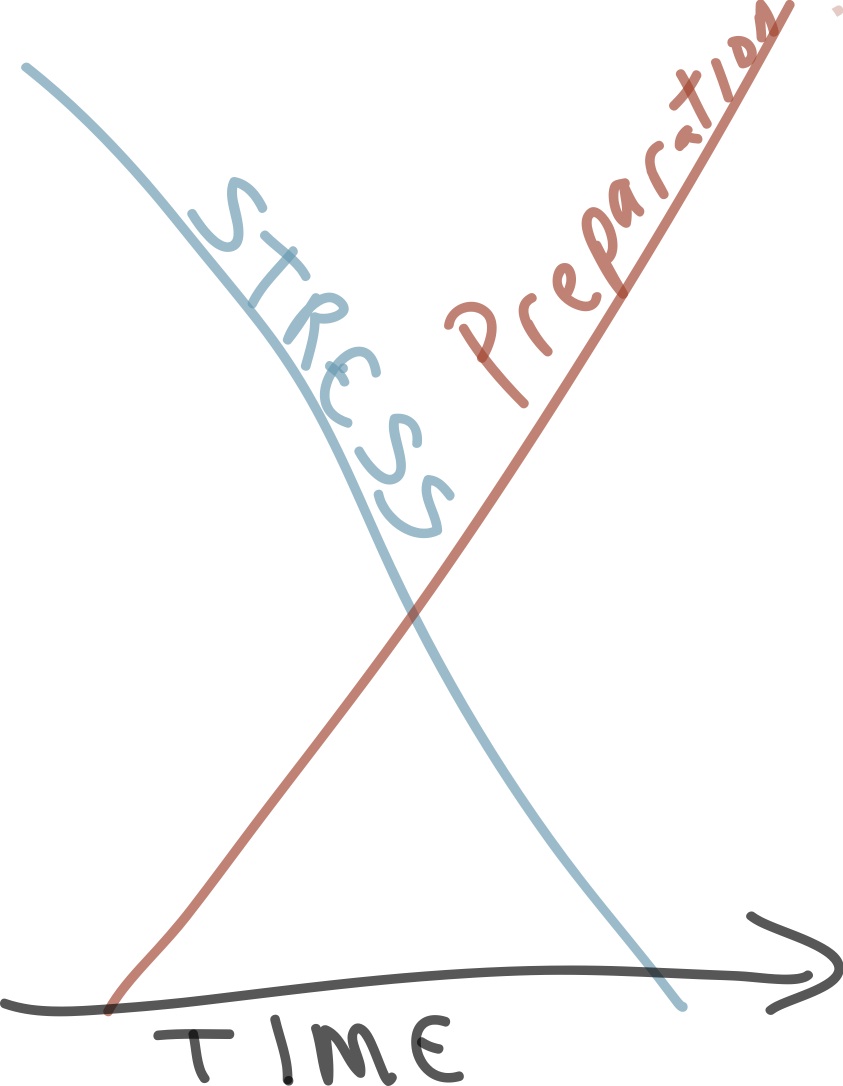This is a guest post by Tor Contantino. I had the pleasure of meeting Tor at Catalyst this year. Tor Constantino is an ex-journalist, current public relations professional who has worked for CBS Radio and ABC, CBS television stations. He contributes to RELEVANT magazine, ChristianPost.com, SCL and his blog, www.torconbooks.com.
Here are 5 Productivity Pitfalls Learned From Marathon Training:
Prior to my 40th birthday I decided I wanted to run a full marathon. I found a training regimen, stuck to it and successfully completed my first 26.2 mile distance within the top half of finishers for my age group – with energy to spare!
That experience for me was akin to successfully finishing a large project at my job – on time, under budget with the desired positive result. I then decided that “marathoning” would be my hobby. I followed the same plan for five months and had a similar outcome with my second full marathon.
Then things changed.
Six months later I ran my third marathon. It took me nearly seven hours to finish – that was more than three hours longer than my fastest race – a productivity loss of more than 40 percent. I was one of the last people to cross the finish line. Every joint and muscle in my body ached. Plus, I was 20 pounds heavier running the third race than the previous ones.
What happened? I allowed my past successes to undermine my future objectives. Specifically, I fell into five productivity pitfalls that led to my diminished performance.
I assumed my performance would improve with each race. I mistakenly believed that simply committing to running the third race, coupled with my “proven” past success, would be enough. Unfortunately I didn’t take the necessary training steps to amp up my pace such as strength training and speed work. To avoid this productivity pitfall in other areas of life, ensure you conduct the necessary due diligence, preparation and secure proper training for the desired improvement.
I thought that I had cracked the marathon code. I had become too comfortable with the idea that 26.2 miles was the same everywhere – but the hills of Baltimore shattered that myth for me. Every marathon is different – from the elevation, terrain surface, weather and number of participants. Beyond racing, it’s critically important to remember that each project is distinct as well, offering unique productivity opportunities packed with its own challenges.
Overconfidence allowed past bad habits to resurface. I’ve been 10-20 pounds overweight most of my adult compared to standard body mass index charts for my height. During the training for my first two races I ate more and healthier fuel than normal to sustain my higher energy output. But for race three, I started eating more empty calories and processed foods which hindered my training. So much so that during the six month “training” window I had gained almost 20 pounds. I didn’t even notice, because I told myself I was training for a marathon and I deserved it. The takeaway here, make sure your project has the absolute best inputs whether it’s data, information or resources – give it the best chance to succeed.
I rationalized training less. As previously stated my diet changed dramatically which negatively impacted my ability to finish my long training runs. Most marathon training programs have 3-4 shorter maintenance sessions during the week that are less than six miles. These are intended to keep your body primed for the long runs that build a mile or two on the weekends, usually maxing out at 20 miles. Training for the third marathon, I was not able to finish a single long run of the program. I shrugged it off since I’d already run 26.2 miles – twice. This showcases the need to be honest with yourself and your team the moment problems start arising on a project or job, work to identify corrective measures and implement them as soon as possible so as not to jeopardize the final output.
I allowed modest success to leech my passion. Successfully running a full marathon not only requires a lot of physical discipline but a lot of mental discipline as well. For the first two races, I was more mentally prepared than I was physically. That’s the only way you can get your body to continue to keep moving through the fatigue and aches. I was passionate and committed to finishing the earlier races at a predetermined pace. But that passion ebbed in preparation for the third because I adopted a lazy “been there, done that” mentality, which hurt my performance. Avoiding this pitfall requires a conscious effort to find or create your passion about each project, because productivity will suffer absent passionate commitment.
The epilogue to this story is that my botched third marathon served as a painful wake call. I’ve gotten back on track and have since completed three more full marathons, plus a handful of half marathons as well as lost the extra 20 pounds of excess race weight. I’m living proof that avoiding productivity pitfalls can help you run the good race – literally.
Thanks Tor. Have you ever trained for something as intensely as you do for a marathon? What did you learn in the process?






 Logging you in...
Logging you in...
 Loading IntenseDebate Comments...
Loading IntenseDebate Comments...
Marathon now become great part of games while it is awareness and show great skills. i am wondering to participate this idea in marathon race.
I’ve trained/ran three hundred milers, two 50 milers, and a 50k. I learned that paying your dues and training hard are the hardest parts of the race. Though 100 miles and 34 hours was challenging, keeping my motivation up for over a year, and keeping my eye on the end goal was far more challenging.
Running ultras is like life…take things one step at a time and you’ll eventually arrive.
What a wonderful post! This a great lesson learned from a man who underestimated the art of marathon. As a runner myself, I also have a tendency to procrastinate because of my overconfidence in running. This article served me as a wake up call to always do more of what is asked of you. Bookmarked this article!
Thanks!
Half-marathan training has taught me the importance of persisting and holding on in life. And, I understood that our life journey is similar to marathoning rather than 100 meter sprinting. Also, I have realized the importance of mental grit and consistency in our life.
I love the term “mental grit”
Fair warning, having lived in all both cities that you mentioned in this post, I'd like to add a third: If you think that Baltimore is hilly, watch out for Richmond, VA.
Good stuff, sir.
I'd love to run there!
I did a half marathon once. What it taught me is the value (for me) of a predetermined schedule. I use a similar schedule all the time now, for various events I need to prepare for. What do I need to be doing the week before? The month before? I had previously been all about winging it, but with the half marathon, I had a schedule that told me how many miles to run every week.
(and I agree with @torcon above – running outside with my dog – in a post break-up funk, at that – was a very healing experience.)
Thanks Ron!
Thanks! Good thoughts!
Congratulations on completing a half-marathon – that's fantastic! That's a great point Eleanor about the fact that training in such large chunks of time makes us more mindful of the needless "time drains" in our lives – and it helps us plug those drains. I also found that it helped sharpen my mental focus and attention, in addition to the spiritual, physical and time benefits discussed.
I can't tell you how much I needed this today. I am new to running so the marathon talk initially got my attention. But, the lessons you shared spoke to something deeper I've been pondering and praying through. Thanks so much!!
I appreciate the feedback Jacquie and I'm grateful that Ron thought it was worthwhile. On a side note, the hours I've spent running alone outdoors, have proved to be some of the most blessed experiences of fellowship with the Lord in my 30+ years as a believer. For what that's worth….
That's awesome.
Wow Bill, that sounds like an extreme marathon to me! I applaud your endurance and mental toughness – thanks for the kind words as well!
I agree. Extreme.
A similar thing happened to me when I did my first duathlon. Didn't bike enough for training and concentrated on the running part. Overconfidence based on my past performance in a sprint tri and half marathon. Lesson learned. Great post.
Glad you like it Brigitte! I think overconfidence is a success killer. Quick question, how do you find the time to cycle, swim and run for triathalon training? It's tough enough for me to find the time to run 3x per week.
I want to do a duathlon. I can't do a tri because I can't swim well enough.
I forgot. I was about 4-5 pounds heavier than I was previously. That makes a big difference on a bike, especially at my age (59) and height.
You are a tall guy!
I have not trained for anything specifically like a marathon but i did train the last two years for what is called the HIlly Hundred. It is 100 miles over hilly terrain over 2 days. The first day (Saturday) is anywhere between 55-60 miles. I can only do Saturday but I trained for it. I was in good riding shape for me (around 200-206) at 6'5". This year I knew i was not able to ride it due to a Saturday night worship and leaving for theSticks the next day (Sunday) so while I rode all summer I was not as guarded on my eating. While I believe I could have finished, I would not have felt as good as the previous two years. I really like what he says here Ron. Thanks for posting it.